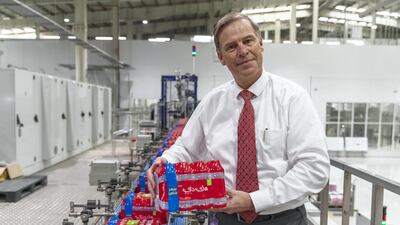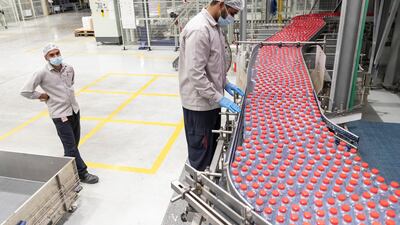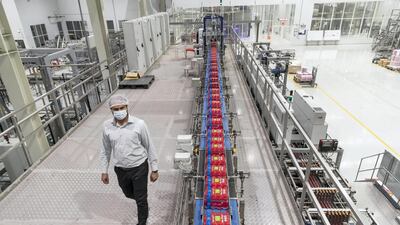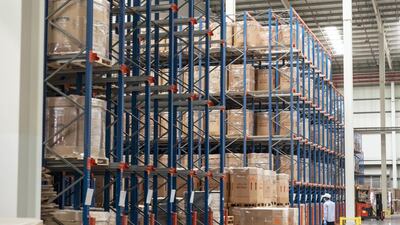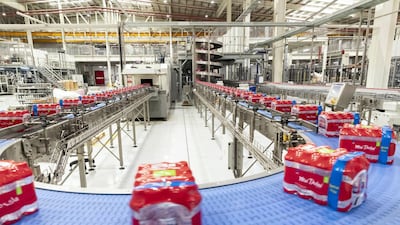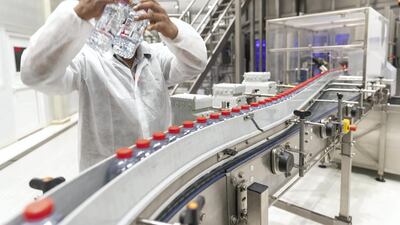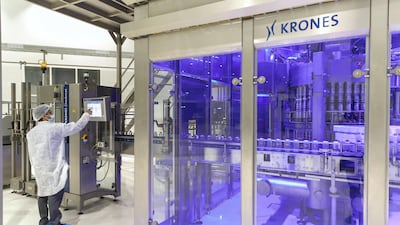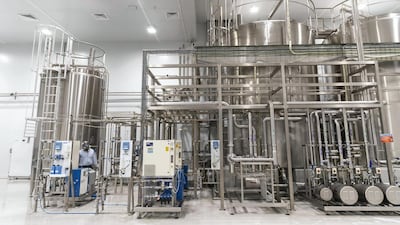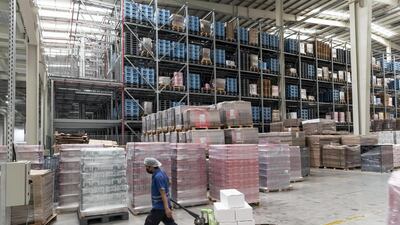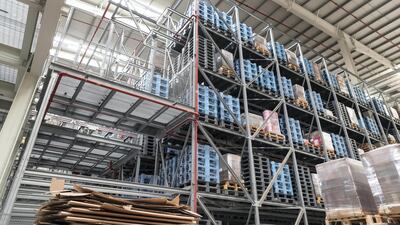Bottled water company Mai Dubai expects to use more sustainable solutions to produce and package water following its transition into a carbon-neutral company.
The Dubai-based company, owned by Dubai Electricity and Water Authority, is powered entirely by renewable energy through its solar rooftop, the second-largest roof installed solar power generation unit in the world after a 37.6 megawatts facility in Vietnam.
Around 18.1MW of solar photovoltaic generation, backed by 52,056 panels, support the full spectrum of Mai Dubai's water bottling activities. The solar panel installation completed by Dubai-based Enerwhere covers the rooftops of Mai Dubai as well as the adjacent Ghaffath water reservoir.
A further 10MW of capacity will be added "over the next three years", with an additional 20,000 solar panels installed across its expanding facilities, the company's chief executive Alexander van 't Riet, told The National in an interview.
Mai Dubai has also received substantial backing from the emirate's utility, its parent company.
Established five years ago, Mai Dubai is known for its bright red labelled water bottles, which now have a marking indicating they're produced using only renewable energy.
The first phase of the solar power generation was activated in 2017 but the entire project was completed last year and the company "started making the claim around being green", said Mr van 't Riet.
He declined to divulge the financial details of the project, but said the "substantial investment" in solar rooftop installations for an energy-intensive sector such as water bottling pays dividends in "not more than 10 years and it's not less than five years".
Mai Dubai, which its chief executive said has the second-largest market share for bottled water in the UAE at 17 per cent, aims to capture the number one spot in about two years, Mr van 't Riet said.
The company is pressing ahead with its expansion and plans to add new production lines to its new Dh500 million factory. One of its future production lines will produce 85,000 bottles per hour, or 20 bottles per second.
"I mean when it comes out, it comes just flying out of the machine. It's quite impressive," said Mr van 't Riet.
The company is also building a depot, which will cost between Dh25m to Dh35m, and will be operational by the end of next year.
The Covid-19-induced movement restrictions also prompted a marked change in consumer behaviour. Demand from offices, schools, restaurants and cafes fell temporarily but e-commerce orders picked up, Mr van 't Riet said.
Customers also preferred to buy in bulk and reduce their shopping frequencies.
"People that were drinking in the office, were all of a sudden sitting at home," Mr van 't Riet said.
Out of increased concern over hygiene as well as care for the planet, some consumers have also turned to water produced through contactless methods, such as the air-to-water technology.
Atmospheric water generation (AWG) refers to a method of producing drinkable water directly from air by condensing H2O molecules below dew point.
The process has been used to provide water to regions affected by natural disasters. It has also been used to supply water in remote locations and is now being increasingly favoured in the GCC as a more sustainable way to produce water.
"That technology is also developing, we're not ignoring that," said Mr van 't Riet.
The company is "keeping an eye" on filtration and air-to-water technology, he said. "There is nothing concrete at this point [though]."
Mai Dubai plans to expand its operations to other emirates before charting a GCC-wide expansion. It plans to leverage its strong brand identity, tied to the image of the Dubai, the commercial hub of the UAE, when expanding regionally, the executive said.
"Mai Dubai is a very strong brand, very high quality ... so to add another brand or another factory, it would have to be up to our standards," said Mr van 't Riet.
The company sees another big opportunity in the recycling of PET (polyethylene terephthalate) bottles, which is used for the bulk of water bottling in the UAE.
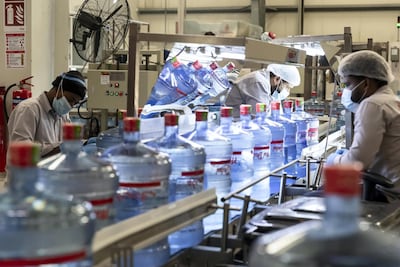
Recycled PET, also known as rPET, is a fairly nascent market in the UAE, but one that producers such as Mai Dubai are recommending to address sustainability concerns.
"The demands for recycled plastic currently in the world is higher than the plastic that has been collected. Some large companies want to go 100 per cent rPET and as a result of that there is a shortage globally," said Mr van 't Riet.
Mai Dubai is working with competitors to see how it can scale-up rPET usage in the UAE.
But the development of rPET in the UAE eventually will be down to consumers and whether they're willing to pay a higher amount for recycled plastic bottles.
"Are you willing to buy slightly more expensive but more responsible products, but that's where people vote with their feet," said Mr van 't Riet.
